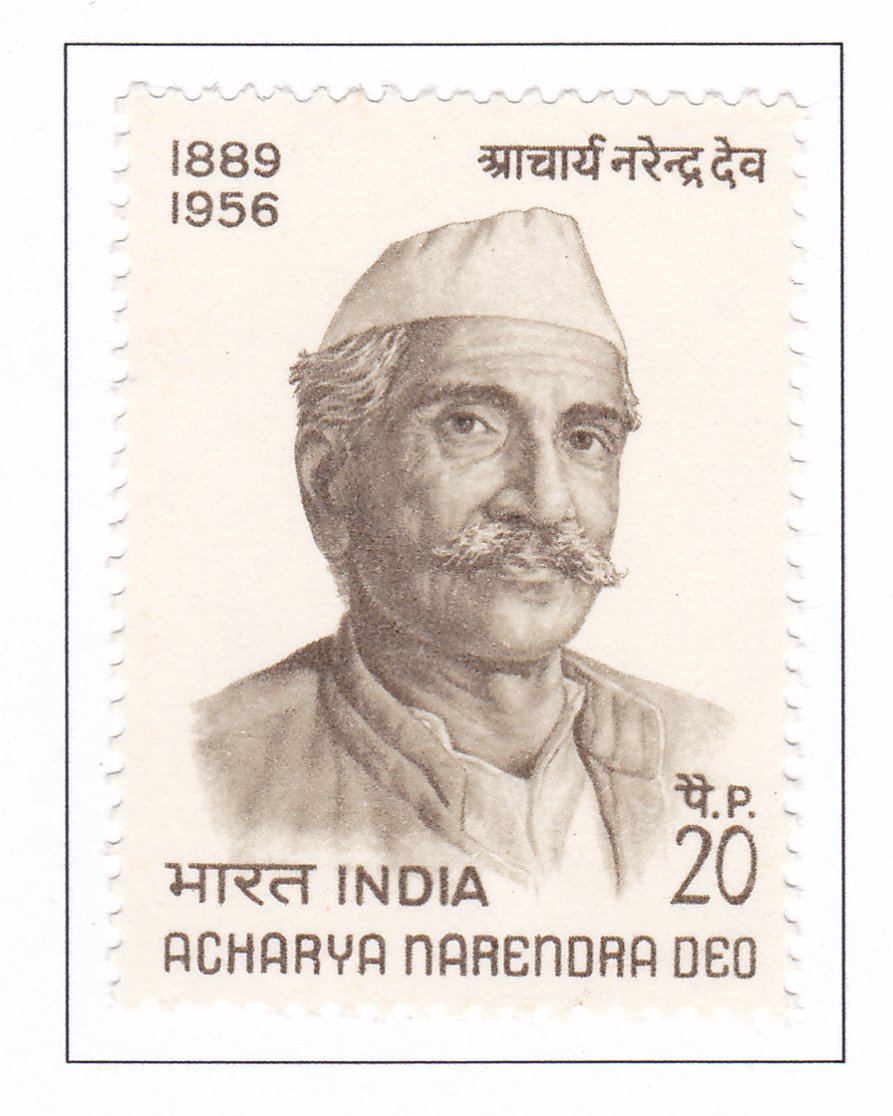Acharya Narendra Deo

Technical Data
| Stamp Set | Death Centenary |
|---|---|
| Date of Issue | February 19, 1971 |
| Denomination | 20 nP |
| Quantity | 3,000,000 |
| Perforation | comb 13 |
| Printer | Security Printing Press, Nashik |
| Watermark | No Watermark |
| Colors | Dull green |
| Catalog Codes |
Michel IN 521 Stamp Number IN 537 Yvert et Tellier IN 318 Stanley Gibbons IN 635 |
| Themes | Anniversaries and Jubilees | Famous people | Headgear | Men |
Acharya Narendra Deo, born in Sitapur, Uttar Pradesh, in 1889, emerged as a prominent figure in India’s struggle for independence and social reform. Educated at Allahabad University, he embarked on a multifaceted journey as a freedom fighter, educationist, and scholar.
Joining the Indian National Congress in 1917, Acharya Narendra Deo played an active role in various civil disobedience movements and satyagrahas, enduring imprisonment multiple times. He was a leading figure in the Kisan movement, advocating for the rights of farmers and the abolition of the zamindari system.
Acharya Narendra Deo’s contributions extended to education, serving as Vice-Chancellor of Kashi Vidyapith, Lucknow University, and Banaras Hindu University. He played a key role in shaping educational policies and was involved in the First Education Commission.
Deeply influenced by both Eastern and Western ideologies, Acharya Narendra Deo was a scholar of ancient Indian history and a renowned authority on Buddhism. His scholarly work, including the book “Abhijnyan Dharma Kosa,” earned him recognition in academic circles.
An eloquent orator proficient in multiple languages, Acharya Narendra Deo was a versatile leader who traveled abroad as part of cultural delegations. His vision for India encompassed political freedom, economic justice, and social progress, rooted in the principles of democracy and socialism.
Acharya Narendra Deo’s legacy as a dedicated patriot and social reformer lives on, inspiring generations to strive for a more just and equitable society. The commemorative stamp issued by the Posts and Telegraphs Department honors his remarkable contributions to the nation and serves as a testament to his enduring legacy.
